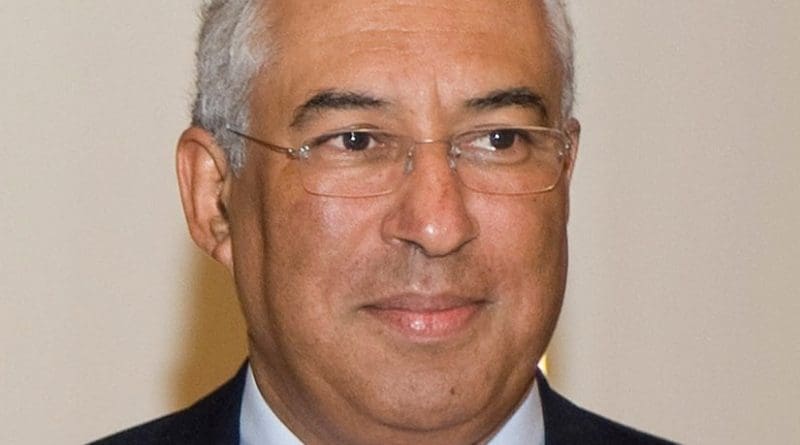Portugal: Socialist Costa To Head Government With Uneasy Far-Left Backing
By EurActiv
(EurActiv) — Portugal’s president named Socialist leader Antonio Costa as prime minister on Tuesday, ending weeks of political stalemate and paving the way for the first, if potentially unstable, Socialist government reliant on the far left for its survival.
The Socialist Party (PS) has promised to end years of harsh austerity, increase families’ disposable incomes and help the poor, who suffered during Portugal’s debt crisis and a bailout that ended last year, while still cutting the deficit in line with Portugal’s European commitments.
Together with the far-left Communists and Left Bloc, Costa two weeks ago toppled the minority centre-right coalition that had returned to power after winning most votes in an election on 4 October, but losing its overall majority.
The political turmoil of recent weeks has prompted concerns that an economic recovery could be undermined, and has been seen by some analysts as the most critical moment in Portuguese politics since the 1974 Carnation Revolution, when a right-wing dictatorship was overthrown and democracy ushered in.
Still, financial analysts said investors for now preferred to focus on the end of the impasse and on the Socialists’ promises to stick to EU budget rules, despite the euroscepticism of their allies.
“The debt market is not scared of a leftist government because people believe that core European measures will not be at stake,” said Filipe Silva, debt manager at Banco Carregosa.
“This government has nothing to do with the Syriza case (in Greece). PS is a pro-European party, so there is no stress.”
President Anibal Cavaco Silva, who is barred from dissolving parliament in the run-up to a presidential election in January, said that his other option of leaving the centre-right government of Pedro Passos Coelho in office in a caretaker role “does not correspond to the national interest”.
Still, many analysts say that, further down the road, the Socialist government may find it hard to rein in its far-left allies, especially if new belt-tightening measures are required to meet budget goals.
“We think this leftist government experience will prove relatively short-lived,” JPMorgan analyst Marco Protopapa wrote in a research note.
“We would not be surprised if a weaker macro environment required additional austerity measures as soon as early 2016. In turn, that could prove to be a first key pressure point for the stability of the government.”
Costa argues that an expansion in disposable income will boost the economy and help cut the deficit more than austerity does.
Cavaco Silva had requested written assurances from Costa that he and his leftist partners would respect Portugal’s commitments to EU budget rules, something that Costa’s partners had not pledged to do.
The Communists rejected Cavaco Silva’s demands, but Costa’s Socialists, who will form the government alone, responded to the president’s request on Monday.
Cavaco Silva said their response was “duly noted … in terms of the stability and durability of a minority Socialist government through the legislature’s term”.
JPMorgan said Costa’s nomination “implicitly acknowledges that the PS has been able to satisfy these minimum criteria”.
The Socialists’ parliamentary leader, Carlos Cesar, said he expected the government to be sworn in this week. “It’s time to get down to work… the country is in a very difficult, fragile situation,” he said.

